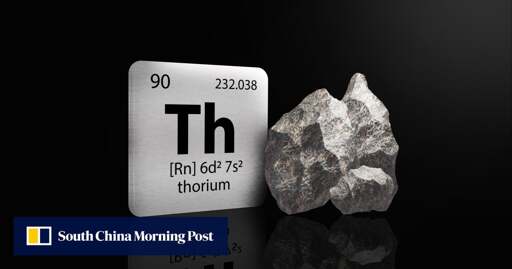It marks the first long-term, stable operation of the technology, putting China at the forefront of a global race to harness thorium – considered a safer and more abundant alternative to uranium – for nuclear power.
The experimental reactor, located in the Gobi Desert in China’s west, uses molten salt as the fuel carrier and coolant, and thorium – a radioactive element abundant in the Earth’s crust – as the fuel source. The reactor is reportedly designed to sustainably generate 2 megawatts of thermal power.



You do lose quite a bit of electricity going over long distances, but can overcome that with sheer volume. But that also means the closer the generator to the consumer, the more efficient it’ll be.
An interesting aspect of this is when trying to mover power over long distances AC becomes inefficient and High Voltage DC becomes the more efficient option.
Between 2-3% for HVDC vs 6-7% for AC systems when transmitting over 1000km.